Social Responsibility
ZHONGJIN Heli Energy's Responsible Practices for Growing Together with Africa
I. Employment Empowerment: Sustainable Development from “Transfusion” to “Generation”
Since its establishment in Zimbabwe in 2023, ZHONGJIN Heli Energy has consistently prioritized job creation and local talent development as core social responsibilities. In the initial phase of project construction, the company prioritized hiring local employees. Currently, over 560 people have been absorbed into the operation of projects such as the coking plant and power plant, accounting for over 80% of the total workforce. To enhance employee skills, the company has established a dedicated training fund and partnered with Zimbabwean vocational and technical colleges to conduct “tailored training” covering professional fields such as mining, mechanical and electrical engineering, and environmental protection, with over 300 training sessions accumulated. Once the project is fully operational, the number of job positions will increase to 1,000. This will not only alleviate the high youth unemployment rate in the local area but also, through technology transfer, cultivate professional talent for local industries, achieving deep empowerment from “providing positions” to “nurturing talent”.
II. Industrial Linkage: Activating Regional Economic Development Engines
As a demonstration project for Chinese enterprises in Africa, ZHONGJIN Heli Energy drives the economic vitality of Hwange by adopting an “industrial cluster” model. The company has established strategic cooperation with Zambezi Coal Mine, promoting the industrialization of local coal resources through the development of a 1,691-hectare mining area. A transportation network consisting of over 500 modern logistics vehicles not only secures its own supply chain but also offers logistics services to surrounding enterprises, reducing regional transportation costs. Furthermore, the cement project utilizes industrial by-products to produce eco-friendly building materials, driving the development of upstream and downstream supporting industries such as packaging, transportation, and sales. It is estimated to create over 200 indirect job opportunities for surrounding communities. This “core project + supporting industries” model is gradually transforming Hwange from a traditional coal capital into a diversified industrial hub.
III. Community Co-building: Fulfilling Responsibilities through Livelihood Improvement
The company deeply integrates its development with community well-being. It has invested special funds in Hwange to improve infrastructure: upgrading 12 kilometers of surrounding roads to address residents' travel difficulties; installing clean water pipelines benefiting over 2,000 households; and collaborating with local hospitals to establish medical stations, providing basic medical services to employees and surrounding residents. Additionally, the company initiated an “Education Support Program,” donating teaching equipment to primary and secondary schools in Hwange and establishing scholarships to support needy students, with a cumulative investment exceeding 500,000 USD. These initiatives have not only improved the quality of life for local residents but also strengthened the emotional ties between Chinese-African enterprises and the community, setting a benchmark for Chinese enterprises' social responsibility practices in Africa.



